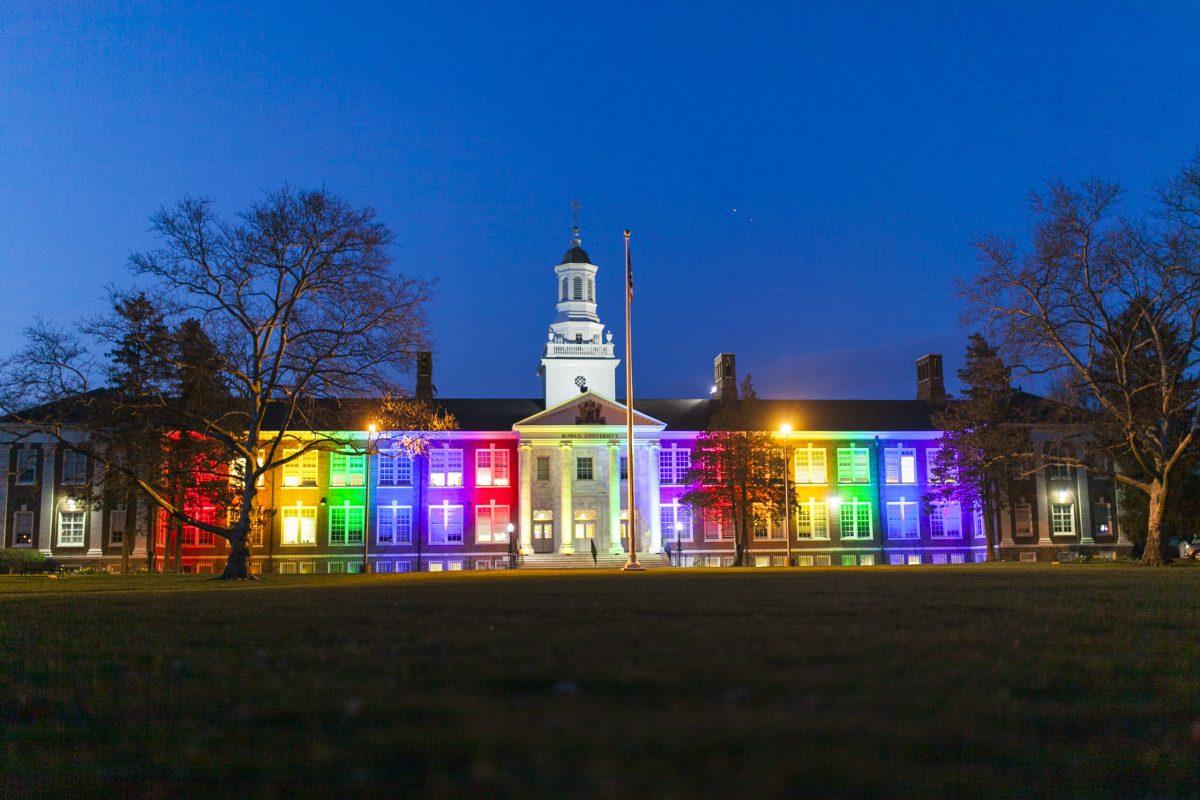There are simply not enough words or enough time to fully capture the devastation that COVID-19 has caused. It would be tone-deaf to not mention the physical hardships faced by individuals during this time, especially as the number of deaths and confirmed cases continue to rise.
However, those who are lucky enough to stay healthy during the pandemic face unique challenges as well.
For most, the pandemic has placed a ‘pause’ on their lives. But, for marginalized people such as the LGBTQIA+ community, COVID-19 has uniquely threatened both their physical and mental healths.
Specifically, LGBTQIA+ college students who lived on campus can find themselves in difficult situations. Roxie Patton, the director of Social Justice, Inclusion and Conflict Resolution at Rowan University commented on those situations.
“Many LGBTQIA+ students come out during college because it is a safe place for them to explore their identities as a whole while also connecting with LGBTQIA+ student organizations. [During] the pandemic, some students are struggling to connect with their communities in the same ways. Some of our students may be going back into homes where they don’t feel they can be fully authentic and may even feel the need to go back in the closet,” she said.

The whirlwind of moving out of college dorms and into hometowns was frantic for everyone involved, but arguably more so for members of the LGBTQ+ community who found themselves in between a rock and hard place while moving. Many members of the community who were not accepted by their homes had to choose between physical safety and the ability to express their sexuality and gender identity.
Patton advised those who find themselves in homophobic environments because of COVID-19 that it is okay to feel however they feel.
“Don’t let anyone dictate how you should process your experience… You don’t have to do this alone, our campus community is here to support you from SJICR to HCI to our student organizations. We are here for you…if you ever feel unsafe, remember that there are ways to access emergency housing on campus and we can connect you with those resources,” she said.
One student, Christine Stewart, a junior pansexual, non-binary and transgender woman has utilized emergency housing. She admitted that she is lucky to be able to avoid going back to her hometown but misses the True Color’s Gender Affirming Closet, a nonprofit provided at Rowan that allows students to receive free gender-affirming clothing.
For Stewart, finding the gender-affirming closet was a “huge” moment.
“[The closet] made things easier…[but] I feel a bit more isolated [now still]; I have enough clothes for now, I just miss being able to go to LGBTQIA+ spaces and chill with friends there.”
The feeling of isolation within the community is ever-present. This year, in-person Pride parades are canceled in order to adhere to social distancing guidelines. Although there are still Pride events happening online, the accessibility of these events is questionable. Many people are unable to “attend” because of a lack of access to the internet, devices and, more than likely, being stuck in homophobic households.
However, Patton argued that accessibility during Pride has always been an issue.
“How many LGBTQIA+ venues in the region are accessible by wheelchair? How many allow strobe lights? How many provide access to low sensory spaces? At Pride there is so much [more] that we can be doing [to be more inclusive],” she said. “While the more modern version of Pride has been canceled due to COVID-19, I would argue that a more realistic celebration of Pride is happening across the country as we come together to demand that all Black lives matter. This includes our Black LGBTQIA+ community.”
Ella Emmer, the current president of PRISM at Rowan, echoed this sentiment.
“I think that it’s important to still foster a sense of community during this time to remind others they are not alone. I also think that right now a big part of Pride is recognizing that we owe our current rights to a movement started and carried by Black LGBTQIA+ activists,” she said. “It is so imperative for us to be taking action and supporting the Black community. Activism is intersectional and I feel a big part of being proud is using our voices to continue to foster the much-needed change in the world!”
In between these acts of activism, it’s important to note that Rowan’s SJICR still is a safe space for all people during quarantine.
“The LGBTQIA+ Leadership Committee, which is made up of leadership from all of our LGBTQIA+ student organizations, has held ongoing meetings in order to plan events and discuss ongoing student needs,” Patton said. “We are currently hosting a book club that students of all identities are welcome to join as well as service projects where students can connect with vulnerable community members to provide connections during the quarantine. We are also all still available at the click of a button if you need to talk or have an idea for a program. All you need to do is email me at [email protected].”
Although the face of Pride has undoubtedly been changed, and the struggles of LGBTQIA+ people are especially pronounced during the pandemic, it’s important to remember the strength of the community. Throughout history, this community has survived unspeakable acts of hate and still found love and acceptance among their trials. It has survived and thrived through hardships in the past and will undoubtedly continue to do so in the middle of a pandemic.
Until things settle down, it’s important to remember that no matter what happens, nothing in the world can take away the community’s strength and ability to persevere through hardship.
For comments/questions about this story, email [email protected] or tweet @TheWhitOnline.

























































































































































!["Working with [Dr. Lynch] is always a learning experience for me. She is a treasure,” said Thomas. - Staff Writer / Kacie Scibilia](https://thewhitonline.com/wp-content/uploads/2025/04/choir-1-1200x694.jpg)









































